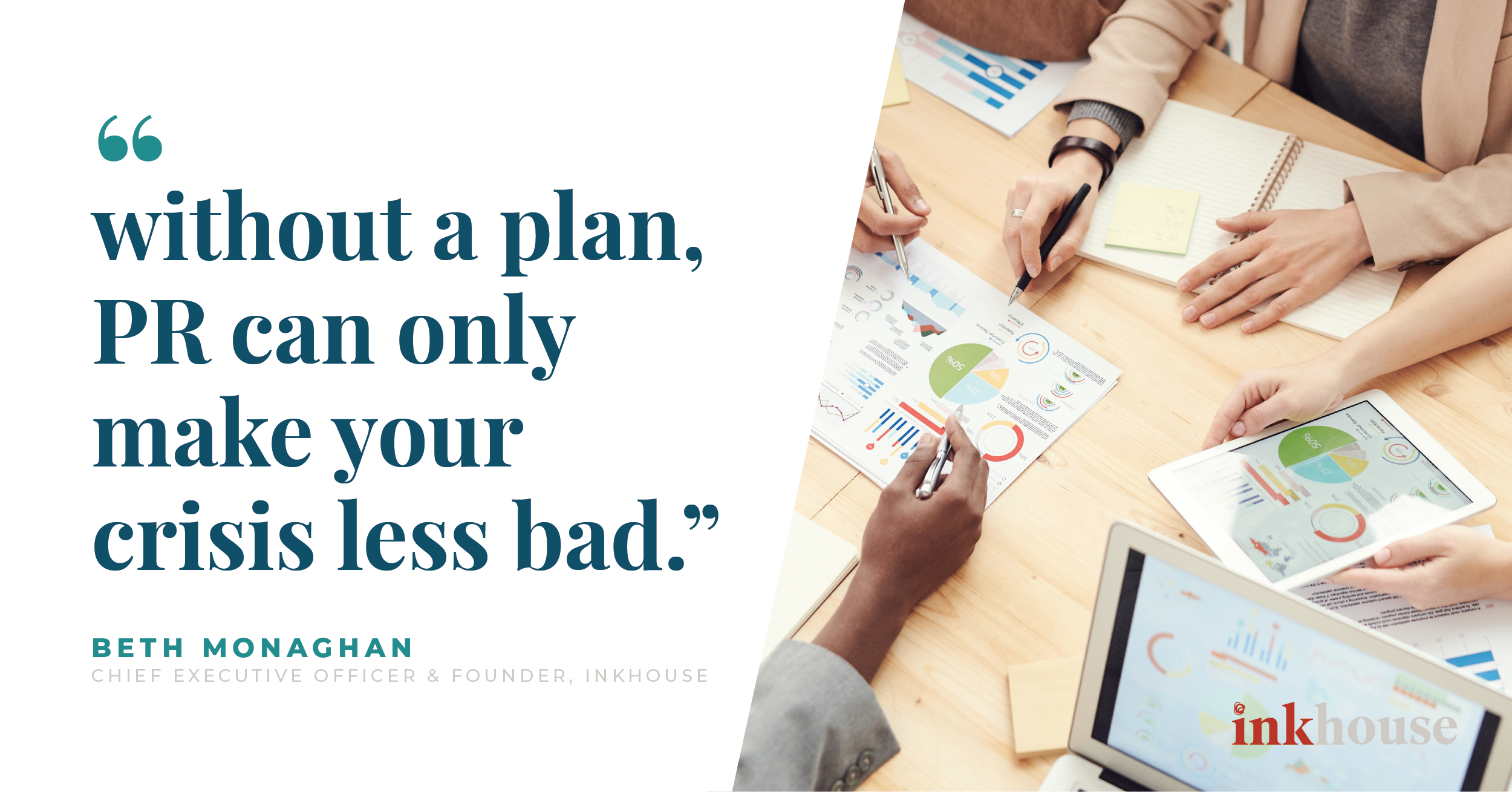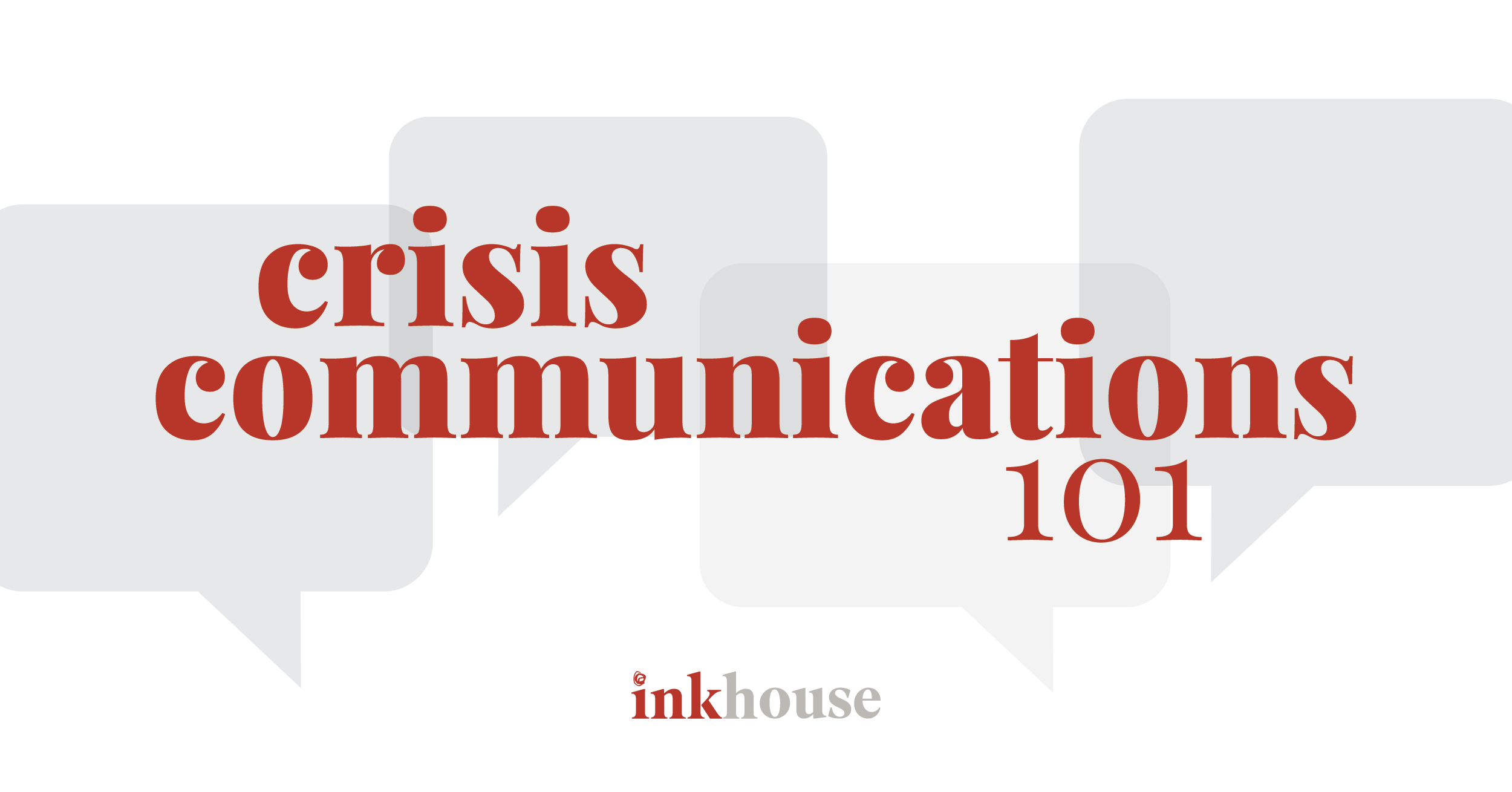Crisis Communications 101: Not If But When
Aug 12, 2021 Beth Monaghan
Most tech startups focus on growth, not risk mitigation. They’re busy chasing the opportunity of tomorrow and not planning for the issues that will arise on that journey.
Crisis management isn’t an “if” but more of a “when” thing.
For example, as we continue to navigate this relentless pandemic—and its impacts on businesses, policies and people—companies need to be able to answer COVID-related questions on a moment’s notice.
When you’re caught unprepared, you become reactive to the situation, which makes it too easy to make mistakes that could be easily prevented. This can make you look defensive while you’re gulping for air in between fending off attacks.
But when you’re prepared you can be responsive and even proactive to keep your reputation intact. This is why every company needs a crisis communications plan (yes, even early-stage startups).
Here’s what you should consider:
☑️ What are your worst-case scenarios? Accidents in the workplace. Data breaches. Employee activism. Executive changes. Lawsuits. #MeToo scandals. Pandemics. It’s better to plan for the worst and hope for the best than to be caught in the worst and not know what to do.
☑️ Is this a one-day story? Today, news cycles are less than 24 hours. Some crises can be waited out. Others will only get worse the longer you wait to address. Are you sitting on information you know is going to come out anyway? Or is the whole truth already out there?
☑️ The news media is judge and jury. You may not have time to conduct a thorough investigation. Once the news story appears, the judgment has been made. Speed of response is critical to control the narrative.
☑️ Delay tactics can look like guilt. Can you respond within 15 minutes? Do you know how to reach the people you need for approval? A good process makes decision-making efficient. Speed is important, but not at the expense of being wrong. This is where your holding statement comes in — it’s what you offer to hold the situation while you figure out the truth. These should be written now.
☑️ You need a human response, not a legal one. Companies need to prepare media strategies for every crisis scenario. Communication delivered calmly, but authentically in your voice, can help any audience pull together and weather difficult times. If a mistake was made, own it, apologize, fix it and move on. But you should be lock-step with your legal team, especially for situations that touch employment law and first amendment issues.
☑️ Your employees are potential sources. If you don’t talk to the press, your employees will begin getting phone calls, texts and social media messages. Internal communication is critical during a crisis. Draft a message to employees to explain the issue, tell them what to do if they receive media inquiries and offer a place or person for them to go to ask questions. Pro tip: You should anticipate that any/all internal memos will be leaked externally.
☑️ Social media is a battlefield. Citizen journalists can become movement leaders overnight, and social media is where like-minded advocates gather. You must engage there too. Are your crisis statements clear and short enough for social? Do you have the right monitoring tools and staff? The virality of social media can cause a small issue to get blown out of proportion within minutes—all before the facts are known.
☑️ Is your spokesperson prepared? Don’t leave this one to chance, even when things are rushed. Practice works out the kinks and clarifies the message. And remember, spokespeople’s baggage becomes yours.
☑️ Who are your defenders? There is strength in numbers, but there’s also credibility in well-respected defenders. Who are yours and how will you reach them quickly?
☑️ Live your values. Before you dive into the tactics, pull out your company values and read them. Your crisis plan should reflect these—values become meaningless when an organization only lives them when times are good.
☑️ Have empathy in hard moments. Approach your teammates from a place of empathy—it’s possible that everyone is going to be working late and it’s high-stress for a period of time.
☑️ Review what happened. After the crisis is over, assess what worked, what didn’t and where the plan needs to be improved.



.png)




